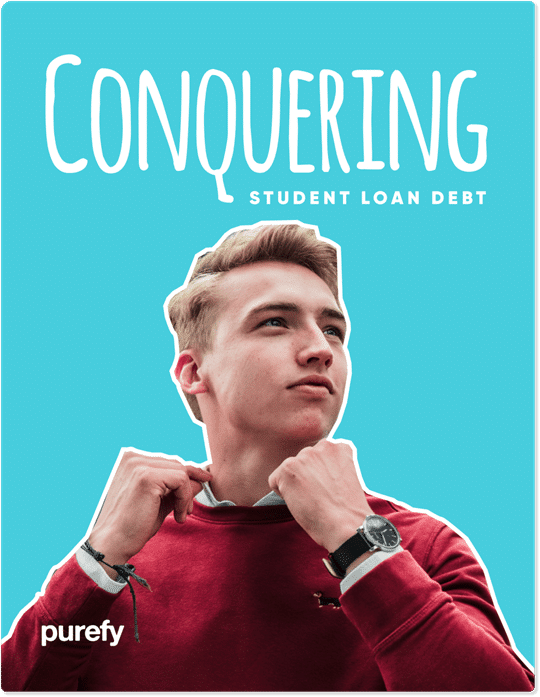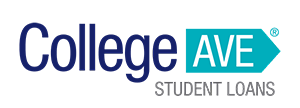Refinancing your student loans can have a positive impact on your financial situation, opening up opportunities for lower interest rates and monthly payments, as well as more flexibility with your monthly payments.
But you may be wondering, will refinancing student loans hurt my credit? Not necessarily, and in many cases, it can help as long as you pay your bills on time. However, it’s important to understand just how the student loan refinancing process works and how your credit score comes into play.
What is a hard credit check vs. soft credit check?
When a lender runs a credit check on you, it can be in the form of a hard inquiry or a soft inquiry.
With a soft inquiry, the lender is getting a basic read on your credit history, but there won’t be an impact on your credit score, positive or negative. Soft inquiries typically occur when you go through the prequalification process to compare rate quotes from one or more lenders.
A hard credit check is a deeper look into someone’s credit history, and it may affect the person’s credit score. According to FICO, each additional hard inquiry generally knocks fewer than five points off your credit score. But while inquiries remain on your credit reports for 24 months, they stop impacting your FICO score after 12 months.
Also, if you submit an official application with multiple student loan refinance companies within a short period, typically 14 days, they’ll all be combined into one inquiry for purposes of calculating your credit score.
A lender can’t perform a hard inquiry on your credit reports unless you give them permission by submitting your application. So you don’t have to worry about anything happening to your credit score until you make that decision.
During a hard inquiry, which happens when you apply for virtually any credit account, one or more of your credit reports is pulled, and details are provided to lenders to determine whether or not they want to lend to you and what interest rate to charge you if they do decide to make a loan.
Why is it important to have a strong credit history and credit score?
A strong credit history and score are crucial for many things in life, especially when trying to get student loan refinancing. When it comes to refinancing your student loans, the better your credit score and credit history are, the higher the interest rate you may qualify for. This can impact how much money you end up saving over time and on a monthly basis.
How does your credit history impact your student loan refinancing application?
To start, if you have a low credit score or poor credit history, it could indicate that you’ve had struggles with managing your finances. Many lenders see people who have poor or limited credit histories as higher-risk borrowers. Therefore, student loan refinancing companies may be unwilling to offer their services to you due to the possibility of being unable to repay the student loans in question.
For the most part, student loan refinance companies require a credit score in the mid-600s, but the best interest rates are reserved for borrowers with scores in the high 700s.
Note that your income is also important in determining your student loan refinance eligibility. In particular, lenders will calculate your debt-to-income ratio, which is a measure of your total debt payments in comparison to your total income.
Depending on the student loan refinance company, a maximum student loan-to-income ratio of 50%, or no more than half of your income going towards student loans, is standard.
If you can’t get approved for student loan refinancing on your own, or if your interest rate is too high, you could improve your chances of getting a low interest rate by applying with a cosigner.
A cosigner is someone who agrees to take on the student loan debt in the event that you cannot repay it.
When you apply for student loan refinancing with a cosigner, you will need to find someone who has good credit and is willing to put their good credit in your hands.
Keep in mind, though, that your loan will show up on your cosigner’s credit report, which could impact their ability to get approved for credit. Also, if you miss a payment, it could damage their credit score along with yours.
The 2 Best Companies to Refinance Student Loans
Our Top-Rated Picks for 2024 Offer Low Rates and No Fees

Does comparing student loan refinance rates hurt my credit?
Part of the process of refinancing your student loans is to shop around and compare rate quotes from multiple lenders. This step is key to helping you ensure that you get the lowest interest rate available for your credit profile and income level.
The good news is that this part of the process involves just a soft credit inquiry, which gives lenders enough information to give you a rate quote but doesn’t hurt your credit. In other words, there’s no commitment necessary just to check your rates.
Keep in mind, though, that the rate you see when you go through the prequalification process isn’t necessarily the rate you’re going to get when you submit a full application. The hard inquiry that lenders run at that point will give them a fuller picture of your credit health, and your offered rate may change depending on what the lender finds.
Does applying for a student loan refinance hurt my credit?
For the most part, the only way applying for a student loan refinance loan can impact your credit is via a hard inquiry. But again, an additional hard inquiry won’t impact your credit score by much, and its effect is only temporary.
The only time an additional hard inquiry might have a bigger negative impact on your credit score is if you’ve applied for a lot of different credit accounts recently, such as credit cards.
If you apply for too many new accounts in a short period, the inquiries can have a compounding effect. But as long as your applications are for rate-shopping only and you complete that process in a short period, you shouldn’t need to worry too much.
In some cases, refinancing student loans could impact your credit if it increases the amount of debt that you owe. In most cases, this won’t change because you’re simply replacing your existing debt with a new loan for the same amount.
But if you’re refinancing debt that your parents took out to help you get through school and now you’re changing it into your name, it could reduce your credit score if the new debt loan is high.
The most important thing to keep in mind as you refinance your student loans is to make all of your payments on time, including during the refinancing process. Until you’ve received confirmation that the new lender has completed the refinance, continue making monthly payments on your original loans. If you end up overpaying, you should get a refund check.
You’ll also want to continue to pay your student loans on time every month after refinancing to build a positive payment history, which can improve your credit score. If you miss a payment, get caught up within 30 days to avoid having it damage your credit score.
If you have a cosigner on your loan, paying on time can also help you eventually release the cosigner from the loan. Just note that not all lenders offer cosigner release, and the payment requirements can vary from lender to lender.
What other student loan refinance eligibility requirements are there?
In addition to meeting minimum credit score requirements — or having a cosigner who does — there may be other eligibility criteria that you have to meet to not only get approved for student loan refinancing but also to qualify for a low interest rate.
Here’s the thing, though: eligibility requirements can vary from lender to lender. So it’s a good idea to check for those criteria before you submit your application. But to give you an idea of what to expect, here are some common requirements you may need to meet:
- Citizenship: Many lenders require you to be a U.S. citizen or a permanent resident. Others may also allow you to apply if you hold an eligible visa or if you have a cosigner who meets the citizenship requirements.
- Income: Minimum income requirements may be as low as $24,000, but remember, just because you meet the minimum requirements, it doesn’t mean you’re going to get a low enough interest rate to make refinancing worth it. The good news is that if you have a low income, you can usually get approved if your cosigner has a high enough income. Your debt-to-income ratio will also come into play. If your debt payments are too high relative to your monthly gross income, you may get a higher interest rate or not qualify at all.
- Degree status: In many cases, student loan refinance lenders will require that you have graduated from an eligible degree or certificate program in order to qualify for refinancing. Depending on the lender, it may require a bachelor’s degree or an associate degree.
- Loan amount: Refinance lenders typically have a minimum amount that you can refinance. If you have less than $5,000 (or sometimes more) in student loan debt, you may not be able to find a lender that’s willing to refinance your loans.
- Payment status: In some cases, you may have a hard time refinancing your student loans if they’re in default status, primarily because it signifies that you’re having trouble keeping up with your loan payments. Even with a cosigner, it could be a tough sell with some lenders.
Many student loan refinance lenders provide at least a few eligibility requirements on their websites. If you’re not sure, though, you can contact the lender directly or go through the prequalification process to see whether you have good odds of getting approved and what your interest rate might look like.

Free eBook: How to Conquer Student Loans
Free eBook: How to Conquer Student Loans

Are there easy ways to improve my credit score?
There are several ways you can improve your credit score, but some take longer than others. The first thing you need to do is to check your credit score and review your credit report. Experian offers free access to your FICO score and Experian credit report, so you can use that as a jumping-off point.
Once you’ve reviewed your credit score and report, you’ll have a better idea of which areas to address. In general, though, here are some key steps you can take.
Always pay on time
Your payment history is the most important factor in your credit score. It makes up 35% of the overall score. Your payment history is critical because it shows lenders how reliable you are as a borrower. In summary, the better your payment history is, the more likely you will be to repay your student loan debt.
Paying your bills on time every month is crucial to maintaining a good credit score. Also, if you have past-due payments, make sure to get caught up as quickly as possible. While it won’t erase your past delinquency, it can help keep the damage from getting worse.
Pay down credit card balances
How much you owe, especially your credit utilization rate, is another important factor in your credit score. Your credit utilization rate is calculated by taking the total amount of credit you use and dividing it by your total credit limit. For example, if you have a $10,000 limit on your credit card balance and you spend $1,000 on it, your utilization rate is 10%.
The lower your utilization rate, the better it is for your credit score. As you pay down your credit card balances, your utilization rate will gradually decrease, which can be a plus for your credit score.
Also, the good news is that credit utilization is calculated monthly. So you don’t have to wait too long to start getting credit for your debt payoff.
Ask for a higher credit limit
While paying down credit card debt can have a big positive impact on your credit score, it may not be feasible if you don’t have a lot of room in your budget for extra payments.
In that case, work on the other half of the equation: your available credit. If you can manage to get a credit limit increase or a new credit card, that additional available credit will drive down your utilization rate, which can help increase your credit score.
Of course, a credit limit increase request or new card application typically results in a hard credit inquiry, so if you’ve opened a lot of new credit accounts lately, it might be wise to wait.
Dispute inaccurate credit report information
Credit report inaccuracies are rare, but they do exist. Make sure you review your credit reports and dispute any false or unfair information.
You can dispute credit report errors directly with the credit bureaus and lenders who provided the information. The process typically takes 30 days, and it’s important to provide any documentation you have to show that the information is wrong or unfair.
You may also find inaccurate credit report information that can be attributable to fraud. Identity thieves can open new accounts in your name, which can lead to fraudulent information being reported on your credit report. Reporting the fraud and freezing your credit reports can help alleviate the damage and protect you from future fraud.
Become an authorized user on a loved one’s credit card
An authorized user is someone who has access to use a credit card account to make payments, but they’re not legally responsible for the debt that accumulates on the account. It’s common for spouses to have each other as authorized users on their credit cards to make it easier to share the accounts. Also, parents may add teenage children to their accounts, so they have a card to use for emergencies.
As an authorized user, the history of the account gets added to your credit report. And while it may not help boost your credit score as much as if you were the primary cardholder, it can still have a big positive impact.
Just be sure to avoid getting added to an account with a negative payment history or a low credit limit. Missed payments and a high utilization rate on the card could damage your credit score along with the primary cardholder’s.
Get credit for utility payments and streaming subscriptions
Historically, non-debt recurring charges haven’t gotten the same treatment as debt payments, which means your utility and phone payments typically don’t show up on your credit report.
However, Experian Boost allows you to add those positive payment histories to your Experian credit file. Simply connect your financial accounts, and the tool will identify eligible utility, phone and streaming payments that are eligible for the program.
You’ll then have the opportunity to choose which ones you want to add to your Experian credit report. If the new information increases your credit score, you’ll know immediately. And if a lender pulls your Experian credit report to calculate your FICO score, that information will be included in the calculation.
I have good credit: Should I refinance student loans?
If your credit is in a good place, you could benefit from refinancing your student loans. However, it’s important to understand both the pros and cons of refinancing student debt before you pull the trigger.
For example, refinancing could help you secure a lower interest rate on your debt, which could reduce your monthly payments and your overall interest charges. It can also give you more flexibility with your monthly payments, as repayment terms can range from five to 20 years with most lenders.
That said, if you have federal student loans, refinancing them with a private lender would cause you to lose access to federal loan benefits. This means you wouldn’t be able to get student loan forgiveness, you wouldn’t be able to request an income-driven repayment plan and you might miss out on certain student loan repayment assistance programs offered by federal and state government agencies.
But if you don’t anticipate needing access to any of those features that federal benefits offer, consider refinancing as a valid option for reaching your student loan repayment goals.
See How Much You Can Save
View Details
Collapse
Step 3: See How Much You Can Save
$15,310
Lifetime Interest
Savings
$1,018
New Monthly
Payment
$128
Monthly
Savings
| Current Loan | New Loan | Savings | |
|---|---|---|---|
| Rate | 6.7% | 4.2% | 2.5% |
| Lifetime Interest | $37,520 | $22,210 | $15,310 |
| Monthly Payment | $1,146 | $1,018 | $128 |
Like what you see? Check your actual prequalified rates from the industry’s top lenders in just 2 minutes or less.
How to compare your best student loan refinance rates
One of the best ways to make sure you get a low interest rate is to shop around and compare rate quotes from multiple lenders. Unfortunately, that process can take a lot of time if you go through prequalification with each lender individually.
With Purefy’s rate comparison tool, you can go through this process with multiple lenders all at once, and you only have to enter your personal information one time.
Once you can compare loan offers side by side, it’s important to make sure that you’re comparing the same types of interest rates. While many lenders offer lower variable rates, those rates can increase over time as market conditions change. And since we’ve seen record-low student loan refinance rates in 2021, the likelihood that rates are going to go up in the future is high.
In other words, make sure you’re comparing fixed interest rates unless you have a good reason to go variable.
The bottom line
Will refinancing student loans hurt my credit? Generally, no. While the hard inquiry when you submit an application can ding your credit score a bit, the impact is usually minor and temporary. And if you can stand to save hundreds or even thousands of dollars on interest through refinancing, that small dip is well worth the trouble.
As you go through the process, though, it’s important to practice good credit habits before and after you refinance. And if your credit score isn’t where it needs to be to get the best interest rates available, take some time to work on building your credit before you apply, unless you have a creditworthy cosigner who can apply with you.
The important thing is that you look for opportunities to make your student loan payments more effective and consider ways you can save money along the way. Also, try Purefy’s college loan refinance calculator and see how much money you can save.




















